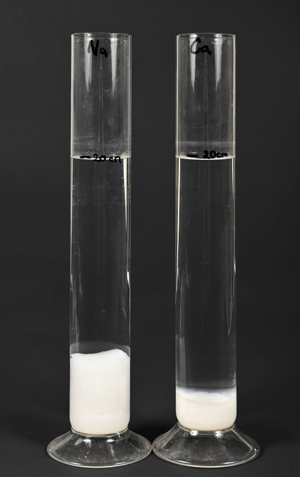Clay Technology Unit
The Clay Technology Unit (CTU) aims to characterise the technological properties of clay materials and to provide interpretations and advice, as well as suggesting solutions to the problems that such materials cause and the challenges they pose.
The use of clay materials is involved in many different industries, such as those dealing with disposal of nuclear wastes, ceramics, paints, coatings, paper production, absorbents, cosmetics and pharmaceuticals, to name but a few. All these industries face clay-related problems, the solutions to which require not only quantitative mineralogical analysis but determination of clay technological properties and interpretive skill with regard to the particular problem in hand.
CTU aims to develop a capacity to engage in such a market, but in the first instance, will provide a service for the oil industry. Some clay-related problems frequently encountered in the oil industry during drilling operations, and which literally cost the industry over a billion pounds per year, are:
- Wellbore Instability
- Disintegration of Cuttings
- Bit Balling
- Deterioration of Reservoir Quality
Additionally, the characterisation of unconventional gas shales requires the close integration of mineralogical and other property data.
CTU will provide information on the technological properties of clay materials directly relevant to the oil industry and the integrated interpretation of these properties including
- Shale Hydration
- Particle size distribution
- Cation exchange capacity
- Exchangeable cations
- Zeta potential and dispersion characteristics
- Specific surface area
- Fine shale porosity by N2 adsorption


